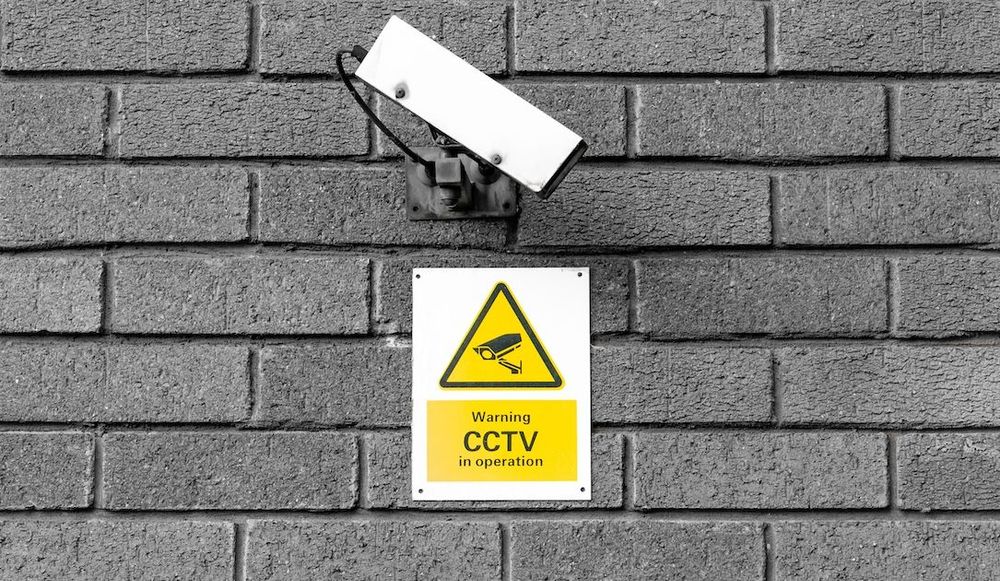UK passport database to be used to identify suspects from CCTV footage
The facial images of more than 45 million people on Britain’s passport database will be used to identify suspects in criminal investigations, under new plans announced by the country’s crime and policing minister.
Chris Philp, speaking at a sideline event during the Conservative Party conference in Manchester, said that while police already had the authority to access the passport database, a new data platform providing a practical mechanism for them to use it would be running within the next two years.
The Home Office has been attempting to create a modern data platform combining the disparate databases it owns for the best part of a decade, as first reported in The Register back in 2016.
Philp said he wanted the new platform to integrate a number of databases, including the immigration and asylum biometrics system covering foreign nationals, so police could find a match using input images captured by CCTV, doorbell cameras or dashcams.
“Operationally, I’m asking them to do it now. In the medium term, which I mean the next two years, we’re going to try and create a new data platform so you can press one button [and it] lets you search it all in one go. But at the moment you’ve got to do it [using a] separate search database, but they should be doing that now,” he said.
The pledge to use the passport database follows retail industry executives complaining about the police for failing to respond to violent attacks on staff and thefts from retail stores. The Home Office’s statistics record that in more than 54% of all reported shoplifting crimes last year, no suspect was ever identified.
Legal issues
Facial recognition technology works by comparing an input image of an unknown person’s face — for instance that of a thief caught on CCTV — against a database of known people’s facial images.
There are currently no specific U.K. laws relating to the police use of facial recognition technology, although there are laws controlling the use of other forms of biometric data such as fingerprints and DNA.
Police in the United Kingdom are currently able to run facial recognition technology on the Police National Database, which holds the mugshot images of millions of people who have previously been arrested.
The High Court ruled in 2012 that this database should not include the facial images of people who were arrested but not subsequently charged. However, the government said that as there were so many of these images in the database it would be impossible for the police to delete them all.
However, the use of the technology to identify a criminal suspect is less controversial than the real-time, or live, use of the technology, when the images of passers-by who are not suspected of a crime are compared against a database of wanted persons, potentially putting innocent people at risk of arrest if the system produces a false positive. According to an independent study sponsored by London’s Metropolitan Police, four out of every five matches produced by these systems are inaccurate.
In 2020, the Court of Appeal ruled that South Wales Police had broken a range of laws by using live facial recognition technology to identify suspects in a crowd. However the judgment was specific to the South Wales Police deployment, and the Metropolitan Police claims its ongoing use of the technology is lawful — although this is contested by civil liberties organizations.
Emmanuelle Andrews, a policy and campaigns manager at the human rights group Liberty, said that by “enabling the police to use private dashcam footage, as well as the immigration and asylum system, and passport database, the government are turning our neighbours, loved ones and public service officials into border guards and watchmen.”
Silkie Carlo, the director of Big Brother Watch, said: “Philp’s plan to subvert Brits’ passport photos into a giant police database is Orwellian and a gross violation of British privacy principles. It means that over 45 million of us with passports who gave our images for travel purposes will, without any kind of consent or the ability to object, be part of secret police line ups.”
Alexander Martin
is the UK Editor for Recorded Future News. He was previously a technology reporter for Sky News and a fellow at the European Cyber Conflict Research Initiative, now Virtual Routes. He can be reached securely using Signal on: AlexanderMartin.79



